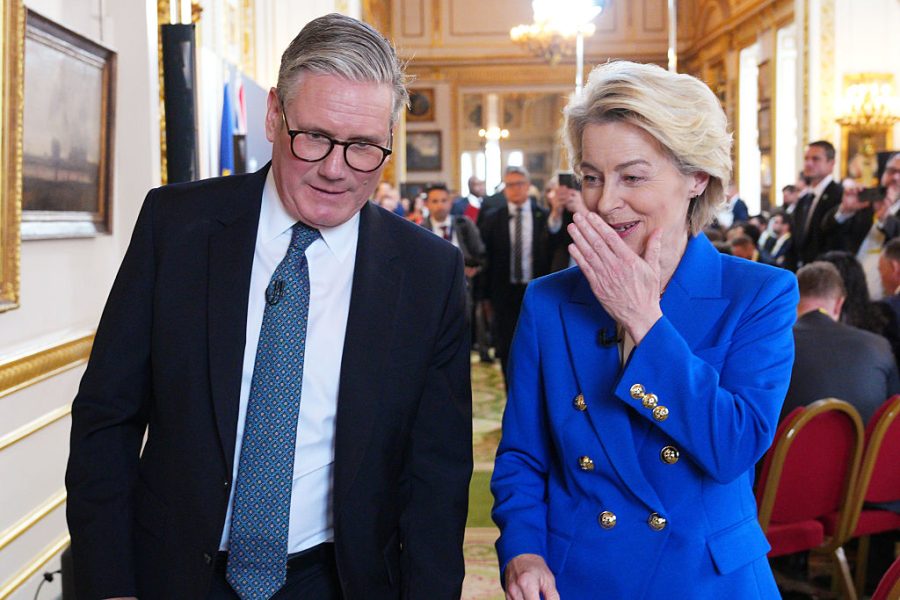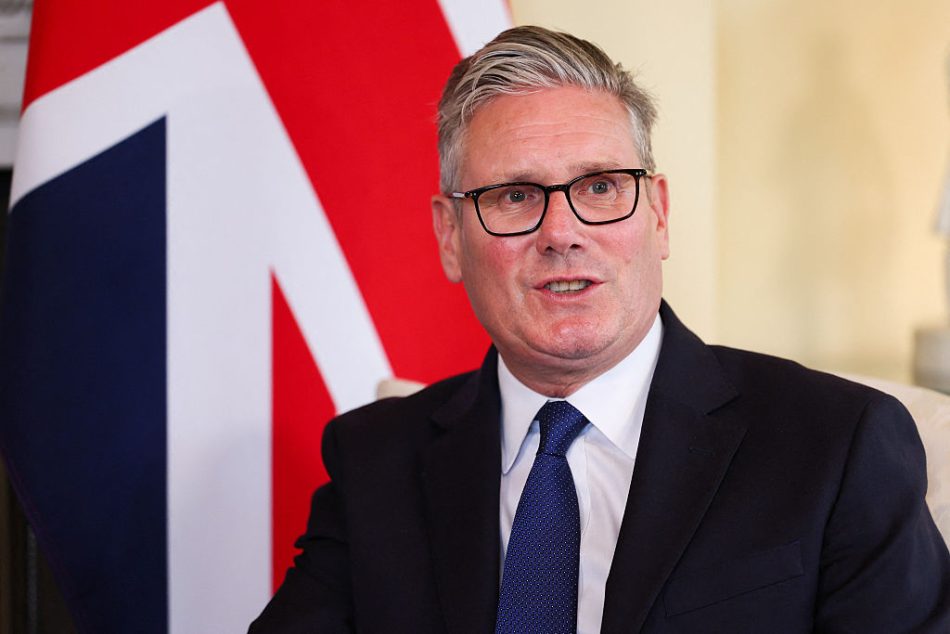Britain is back in the big time. Or at least it is according to Sir Keir Starmer, who was tickled pink with the ‘reset’ relationship agreed with the European Union on Monday. ‘It’s time to look forward,’ declared the Prime Minister, standing alongside the EU Commission president, Ursula von der Leyen. ‘We’re ready to work with partners if it means we can improve people’s lives here at home.’
The Chancellor, Rachel Reeves, shared the PM’s delight at a reset she believes will be good for trade, defence and energy. Others weren’t so sure. Reform leader Nigel Farage – Mr Brexit – accused the government of selling out Britain to the ‘ever-diminishing political union’ that is the EU.
Even Mario Draghi admits he has ‘nightmares’ about the state of the EU’s economy
But don’t just take Farage’s word for it. As Starmer welcomed Brussels’ top brass to London, the Europhile French newspaper Le Figaro published a bleak critique of the EU. This, incidentally, is the newspaper that, above all others in France, has been the most hostile to Brexit. A week after the referendum vote in 2016, Le Figaro called it an ‘historic error’. The paper quoted the French banker David de Rothschild, who expressed his bafflement that anyone would want to leave an EU that ‘is improving in terms of growth, employment and investment’.
Nine years later and Le Figaro hasn’t got quite the same confidence in Brussels. In an op-ed entitled ‘The EU is a hostage to its bureaucracy’, the paper lamented that the bloc refuses ‘to take the initiatives that would relaunch European capitalism’. As a consequence, Europe has ‘ruined its agriculture and industry’ and is no longer capable of competing with America and China.
The facts and figures the paper lists are damning. European industry has shrunk on the world market from 22.5 per cent to 14 per cent since 2000. Steel production in the world market has, meanwhile, fallen from 7 per cent to 4 per cent. Chemicals production has fallen by almost 15 per cent since 2020. The number of automobiles manufactured in the EU has plummeted from 18.7 to 14 million since 2017. Three million farms have disappeared since 2015. Energy prices in Europe are four times higher than in Asia and five times higher than in the US.
Le Figaro’s grim assessment of the EU’s diminishing clout was reminiscent of the warning sounded last September by Mario Draghi. A former Italian prime minister and the president of the European Central Bank between 2011 and 2019, Draghi couldn’t hide his fear for the bloc’s future.
He laid it out in a 400-page report on competitiveness commissioned by the EU. ‘For the first time since the Cold War, we must genuinely fear for our self-preservation,’ he stated. Europe was stagnating. It needed less bureaucracy and more investment. If not, said Draghi
We will not be able to become, at once, a leader in new technologies, a beacon of climate responsibility and an independent player on the world stage. We will not be able to finance our social model. We will have to scale back some, if not all, of our ambitions.
The EU has not been galvanised by Draghi’s alarm bell. The latest forecasts from the European Commission, released as Starmer met von der Leyen, reveal that the economy is still dire. As a result, the Commission has revised its growth projections downward and now predicts GDP growth of 0.9 per cent in 2025 – and not the 1.5 per cent forecast last November.
If the EU has failed to rise to the economic challenge of the last decade, the same is true of immigration. I predicted last month that Europe’s annual migrant crisis is just getting started, and so it has proved. The number of migrants crossing the Mediterranean (predominantly Bangladeshis, Afghans and Malians) into Italy in April was up 40 per cent on the same month in 2024. In the last week of April, nearly 1,300 migrants reached the Italian island of Lampedusa; in the same week in 2024 it was 106.
This is deeply embarrassing for the EU, and also Giorgia Meloni, who has cultivated a reputation since coming to power as the ‘iron lady of immigration’. If this continues, she may soon be likened to Boris Johnson in a blouse. Why are so many migrants still crossing the Mediterranean? Didn’t the EU hand over huge piles of cash to Egypt, Tunisia and Libya in the expectation that they would stem the flow?
It is because these countries see what Keir Starmer doesn’t. That the EU is weak and ineffectual, and not to be taken that seriously. That’s the view of the Trump administration. Even Mario Draghi admits he has ‘nightmares’ about the state of its economy. Anyone who thinks the EU is on the up is living in dreamland.







Comments